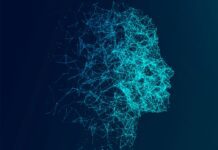
Monash University has released a new study highlighting essential factors for adapting generative AI (GenAI) technologies to enhance human learning, without replacing it.
Published in Nature Human Behaviour, the study outlines crucial factors for researchers, policymakers, and technology companies to consider when adapting GenAI to support human learning across all educational levels and workplaces.
Key recommendations include strategies for using GenAI to augment human learning while promoting critical thinking and self-reflection skills, essential for effective collaboration with AI technologies.
Professor Dragan Gasevic, director of the Centre for Learning Analytics (CoLAM) at Monash University’s Faculty of Information Technology and senior author of the paper, highlighted the transformative potential of AI tools.
He said that advanced AI tools are poised to become essential in society, changing the ways we learn, work, and live, with GenAI technologies potentially influencing all facets of human education.
Professor Gasevic elaborated on imaginative scenarios where students might engage with digital replicas of historical figures to deepen their understanding of complex subjects.
“Imagine students engaging in debates with digital twins of Socrates to explore ancient Greek philosophy, learning impressionist painting techniques from a humanoid robotic mentor modelled after Claude Monet, or visualising Einstein’s special theory of relativity in virtual realities,” he noted.
The study advocates for assessment processes that prioritise genuine knowledge and skill improvement over AI-generated outputs.
It stresses the necessity for teachers to receive support as they adapt to the evolving GenAI landscape, promoting effective human-AI interactions while avoiding over-reliance on technology.
Additionally, the authors urge policymakers and tech companies to ensure accountability, establish ethical guidelines, and consider inclusivity in the development of GenAI educational tools.
While acknowledging the potential of AI tools to enhance learning experiences, the researchers also addressed ethical concerns, including transparency, privacy, and equality, noting disruptions that have already emerged in assessment processes.
Dr Lixiang Yan, the study’s first author and a Research Fellow at CoLAM, underscored the importance of improving AI literacy among both students and teachers.
“We anticipate a shift in educators’ roles, with GenAI reducing the burden of knowledge dissemination, allowing teachers to focus on deeper connections with students as mentors and facilitators,” Dr Yan said.
“Educational institutions must invest in ongoing professional development and support systems to help teachers manage techno-stress and workload burdens from adopting these new technologies.”
The study represents a collaborative effort between learning analytics experts at Monash University and researchers from the University of Luxembourg and Goethe-University Frankfurt.
It received support from the Australian Research Council, the Australian Government through Digital Health CRC, the Defense Advanced Research Project Agency, and Jacobs Foundation.
Beyond this research, CoLAM experts are engaged in developing innovative tools for assessing human-AI collaborative writing, enhancing knowledge sharing among educators, and improving workplace learning for healthcare professionals.
They are also conducting a global study involving secondary students across ten countries, utilizing pioneering GenAI tools to bolster human skills in the AI age.
Professor Dragan Gasevic is available for interviews regarding this research.
To access the full study, visit Nature Human Behaviour.





















